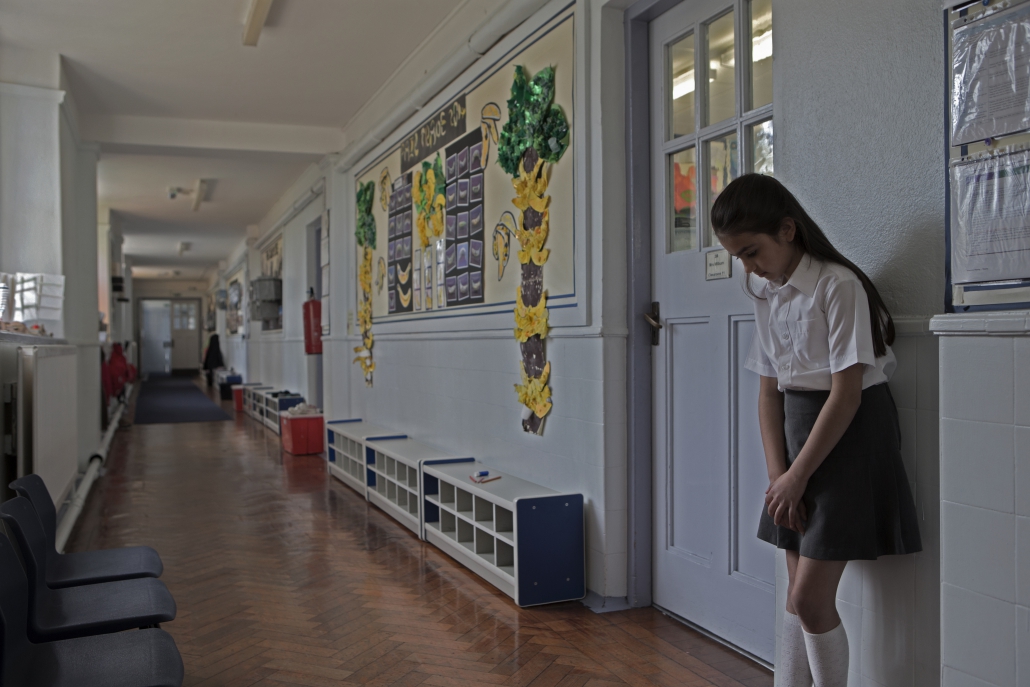How to help the child in your class with social difficulties
by Elliot Agro on Aug 15, 2018

Social skills are on a spectrum, even for those amongst us are neurologically typical. We all know someone who has excellent social skills, which makes them charming, popular and well-liked. We also all know someone who perhaps has not mastered the art of social skills so well, and finds it difficult to speak to people they don’t know, or is loud and takes over conversations.
Who am I talking about?
Social communication is such a broad subject which covers everything from not wanting to look people in the eye when speaking to them, to not being able to wait for your turn in the conversation or ask for help from a stranger when you need it.
Anyone can have difficulties with social skills, but it is generally seen in children and adults with ASD, ADHD, mental health issues and even traumatic brain injuries. For these people, it is not that they don’t want to take turns in a conversation, make friends and fit in, it is simply that they don’t know how.
Think of that child in your class, no-one wants to be their partner in activities and they sit on their own at lunch. Maybe they are always getting in trouble and they don’t understand what they did wrong.

Children with social communication difficulties become adults with social communication difficulties, so it is vital they learn the expected social norms as soon as possible, to ensure they are able to function in the real world once they leave school. For example, it may be difficult to get a job if you don’t realise it is not OK to ask the interviewer what their salary is, or didn’t take the hint that it is time to stop talking!
But surely we have bigger fish to fry?
Social skills deficits can have a major impact on a child’s self-esteem, self-efficacy and self-awareness (Shaw-Zirt et al, 2015), as well as causing anxiety and stopping the child from flourishing in a world where having good social skills can be more important than being intelligent or having qualifications – being popular and being able to ‘talk the talk’ can get you everywhere.
Where does speech & language therapy come into this?
Well, many people don’t realise that speech and language therapists are the prime people to help with social skills! The fact is, social skills are directly related to your communication skills and behaviour.
Poor social skills can be the biggest barrier to communicating effectively.
Many people with poor social skills can have excellent language abilities and vocabulary your first thought may not always be that they need to see the Speech and Language Therapist!

10 top tips!
Here are my top 10 tips for supporting children with social communication difficulties:
1. Teach Explicitly
Don’t expect that the child will pick things up just from watching all the time – if they have reached year 9 and still don’t realise that when someone starts to look bored they should stop talking, then they need this to be explained to them.
2. Encourage
Give the child time to self-reflect, ask them, ‘Why do you think it upset X when you said that?’
3. Remember that non-verbal skills are vital
Show them how you can tell a person looks bored/upset etc and to consider what they can do to resolve that.
4. Make the implicit…explicit
Consider that even though things may seem really obvious to us, for example, that you should hold a door open for someone walking behind you, they may not be to the child, so they may need to be told this.
5. Model, model, model!
But it isn’t enough just to use good social skills around the child and expect them to pick them up, you need to explain why you did what you did. For example ‘X looked bored as he doesn’t like X men, so I changed the conversation to something I know he likes’.
6. Use role-play
To act out situations in which the child has had trouble or is likely to have difficulties, so they know what to expect. Examples of this could be ordering a sandwich in Subway or talking about something other than their specific interests.
7. Link the behaviour
Don’t forget that sometimes challenging behaviour can be due to poor social skills – try to unpick what may have caused the outburst and see if explaining the miscommunication can help the situation.
8. Consider Motivation
Consider that the child may not have the motivation to communicate with others, especially if they are happy in their own little world. Therefore we need to create the motivation by giving them opportunities to communicate with others.
9. Give topic prompts
Suggest topics that the child can talk about with peers, for example, ‘X saw that film at the weekend why don’t you ask him about it?’
10. Take baby steps
It is not constructive to just set the child a broad target that their social skills will improve by the end of the year, they need to be given lots of small and achievable targets to build up their confidence, for example if they need to learn to not bring every conversation back to their favourite topic of X men, start by giving them a timer and telling them they need to talk to a peer for 1 minute without mentioning anything to do with X men.
Remember that some children can be excellent at talking with adults but struggle with peers, so don’t assume that just because they can talk well with you that means they will get on fine with their peers.
What can we achieve?
The main goals for everyone with social communication difficulties will be to be able to interact appropriately with a range of people, to make new friends and maintain meaningful relationships, as well as being able to self-advocate. If you would like to read more about social communication strategies, we love advice in this article from Michelle Garcia Winner and Dr Pamela Crooke.
- General mental health (35)
- General Speech & Language (32)
- School Issues (26)
- Counselling (24)
- Primary Schools (24)
- Classroom Behaviour (23)
- Anxiety (22)
- Speech and Language Therapy (22)
- Absenteeism (20)
- SENCOs (20)
- Safeguarding (17)
- Secondary & Sixth Form Schools (16)
- Social Communication (16)
- Funding (14)
- MATs (14)
- Generalised anxiety (13)
- Autism Support (10)
- Language Delay/Disorder (10)
- Relationship Issues (10)
- SEMH (10)
- ADHD Support (7)
- Speech Sounds (7)
- AAC (6)
- Autism (5)
- Hearing Impairment (5)
- Depression (4)
- Selective Mutism (4)
- Anger (3)
- Cleft Lip/Palate (3)
- Downs Syndrome (2)
- Ofsted (2)
- Phobias (2)
- Stammering (2)
- Loss (1)
- Self-Harm (1)
- Suicidal Thoughts (1)
You may also like
These related stories

The Forgotten Children Scandal – A Review

Developing Oracy Skills at Key Stage 2 with Speech Therapy Strategies
